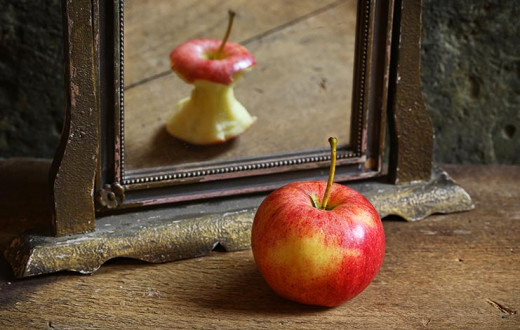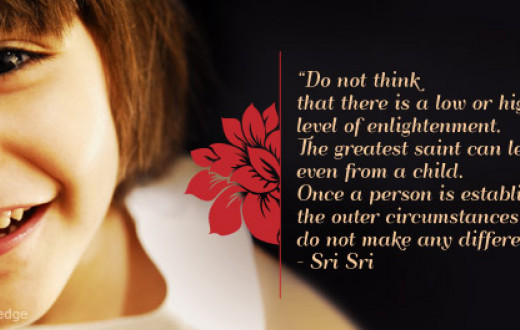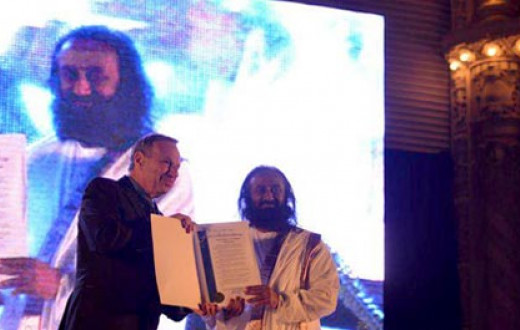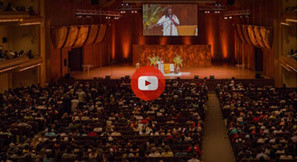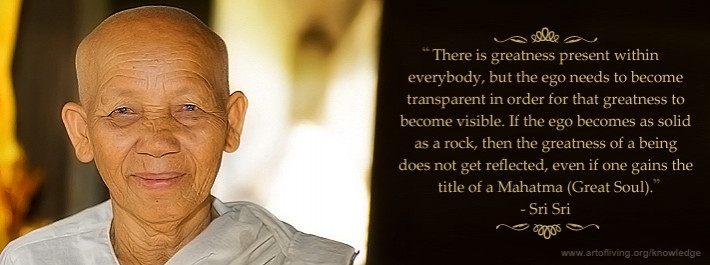
(Below is a continuation of the post The Real Thief Is Ignorance)
In the next verse, the Lord says, 'Mahatmanas tu mam partha daivim prakrtim asritah. Bhajanti ananya-manaso jnatva bhutadim avyayam'. (9.13)
Lord Krishna says, ‘The noble souls (Mahatmas) are not like those in the grip of attachment (resulting in demonic tendencies). A Mahatma is one who holds on to divine qualities and who relies upon the divinity'.
Lord Krishna says, ‘The noble souls (Mahatmas) are always aware that I am eternal, undying and permanent, and with this awareness they are constantly immersed in the bliss of devotion towards Me. They do not get caught up in attachment.
How did we define Moha (attachment)? Attachment is that
which does not really give you any lasting joy, but only gives you a false promise (or temptation) of happiness.
That which lures you, but does not give you any happiness, instead it gives you only misery after misery, that is attachment.
Just like how I told you about cigarettes. Smoking cigarettes does not give you any lasting happiness, but if you have to give up smoking, it gives you a lot of pain. Drinking alcohol does not give you any true joy, but trying to give up alcohol brings so much pain. This is what Mogha-karma is. And those who are entangled in such karma can never find joy, because they abandon divine tendencies and take the refuge of demonic tendencies.
Lord Krishna says, ‘The Mahatmas or noble souls constantly sing the glories of Me and are devoted to Me with one-pointed devotion’.
Who is a Mahatma (noble soul)?
In India, if you say Mahatma, everyone thinks of Mahatma Gandhi. Or we think of sages and saints as Mahatmas (noble souls). But who is a Mahatma?
The mind is very subtle. The intellect is subtler than the mind, and the ego is far subtler than the intellect also. And this ego, which is even subtler than the subtle, makes a person dance to its tunes.
There is ego in every person. It may be Sattvic (positive) ego or it may be Dur-ahamkaar (negative or misleading ego). When the ego becomes even finer, then it reaches an element or a principle called the Mahat Tattva, which is subtler than the ego. It is said that the Mahat Tattva is a 100 times subtler and finer than the ego, which itself is so subtle.
One who has attained this Mahat Tattva is called a Mahatma. So a Mahatma is one whose ego has practically disappeared. A Mahatma is one who does not differentiate among people and accepts everyone as his own.
We do not have to bring this Mahat Tattva from anywhere outside. It resides deep within us all. When the ego becomes transparent (meaning, almost non-existent), then one can see and realize the Mahat Tattva.
There is greatness present within everybody, but the ego needs to become transparent (overcome) in order for that greatness to become visible. If the ego becomes as solid as a wall, then the greatness of being a Mahatma does not get reflected, even if one gains the title of a Mahatma.
So the Mahat Tattva becomes evident when the ego becomes transparent like a glass window (Meaning to become transparent, that is to become simple and natural both from within and on the outside).
For example, the sky is present behind the wall and behind the window as well. You can see the sky from the glass window, isn’t it? You cannot see it completely, but you at least get a glimpse of it. But you cannot see the sky through the solid wall, even though the same sky is present behind the wall. In this way, the Mahat Tattva is present within us all. The ego is simply a curtain that veils the Mahat Tattva and prevents it from being seen and expressed.
The Mahat Tattva is present in a dacoit also. Rishi Valmiki was a dacoit in his earlier days before he became a Rishi. So there is a Valmiki present inside a dacoit also (Meaning: the Mahat Tattva is present in everyone, both in those who do good deeds and in those who do wrong deeds).
Though Sage Valmiki was a dacoit earlier, the Mahat Tattva blossomed and became evident in him. He is regarded as one of the greatest Rishis of all time.
The same happened with Angulimal also (Angulimal was a wicked person who, in the days of Lord Buddha, used to loot travellers and cut off their fingers. He would wear those fingers in a necklace, earning him his name. He was transformed when he met Lord Buddha). But the moment the wall of his ego collapsed, the Mahat Tattva became so clearly manifest in him and he went on to become one of the greatest Bodhisattvas.
What does a Mahatma do? A Mahatma adopts all the qualities of the Divine. They take refuge in the Divine and always act by being anchored onto the Divine for their support. A Duratma (a wicked person or a wrong-doer) takes the support of demonic tendencies to fulfil their desires, but a Mahatma always takes the support of divine tendencies.
Going further, Lord Krishna elaborates on what are demonic and what are divine qualities. But this is certain, that we need the support of divine qualities for consciousness to truly blossom within us.
What are divine qualities? Qualities that help blossom the consciousness within you; that which enhances your awareness and bring more happiness and enthusiasm to you – are truly divine qualities.
(Click Here to continue reading)
(Note: The discourse was given in Hindi. Above is a translation of the original talk.)



















